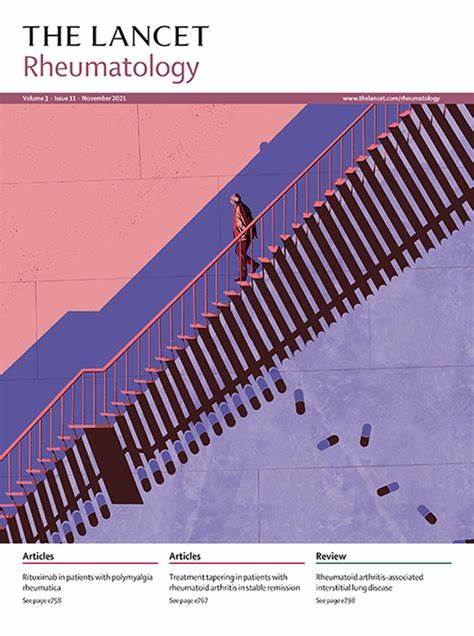自体免疫疾病中的CAR - t细胞疗法:我们在哪里,我们将走向何方?
IF 16.4
1区 医学
Q1 RHEUMATOLOGY
引用次数: 0
摘要
以嵌合抗原受体(CAR)为基础的治疗血液系统恶性肿瘤的疗法最近被重新用于治疗难治性全身自身免疫性疾病。在这篇综述中,我们批判性地讨论了目前在系统性自身免疫性疾病中使用基于car的治疗的可用数据,当前的挑战,以及将其应用于临床实践的潜在下一步。除了通过CD19靶向B细胞之外,我们还讨论了靶向浆细胞(B细胞成熟抗原或CD138)和其他非免疫靶点(如成纤维细胞活化蛋白)的优势和潜在缺陷,以及旨在利用CAR - T调节细胞恢复免疫稳态。CAR-based治疗要成为系统性自身免疫性疾病患者的可行治疗选择,需要解决一些关键问题。本文章由计算机程序翻译,如有差异,请以英文原文为准。
CAR T-cell therapy in autoimmune diseases: where are we and where are we going?
Chimeric antigen receptor (CAR)-based therapies developed for the treatment of haematological malignancies have recently been repurposed to treat refractory systemic autoimmune diseases. In this Review we critically discuss the current data available on the use of CAR-based therapy in systemic autoimmune diseases, the current challenges, and the potential next steps toward their implementation into clinical practice. Beyond the targeting of B cells via CD19, we discuss the advantages and potential pitfalls of targeting plasma cells (B-cell Maturation Antigen or CD138) and other non-immune targets, such as fibroblast activated protein, and of aiming to restore immune homeostasis using CAR T regulatory cells. Crucial points need to be addressed for CAR-based therapy to become a viable treatment option for patients with systemic autoimmune diseases.
求助全文
通过发布文献求助,成功后即可免费获取论文全文。
去求助
来源期刊

Lancet Rheumatology
RHEUMATOLOGY-
CiteScore
34.70
自引率
3.10%
发文量
279
期刊介绍:
The Lancet Rheumatology, an independent journal, is dedicated to publishing content relevant to rheumatology specialists worldwide. It focuses on studies that advance clinical practice, challenge existing norms, and advocate for changes in health policy. The journal covers clinical research, particularly clinical trials, expert reviews, and thought-provoking commentary on the diagnosis, classification, management, and prevention of rheumatic diseases, including arthritis, musculoskeletal disorders, connective tissue diseases, and immune system disorders. Additionally, it publishes high-quality translational studies supported by robust clinical data, prioritizing those that identify potential new therapeutic targets, advance precision medicine efforts, or directly contribute to future clinical trials.
With its strong clinical orientation, The Lancet Rheumatology serves as an independent voice for the rheumatology community, advocating strongly for the enhancement of patients' lives affected by rheumatic diseases worldwide.
 求助内容:
求助内容: 应助结果提醒方式:
应助结果提醒方式:


